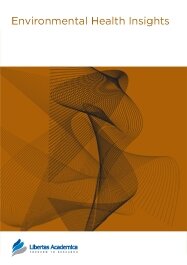

Publication Date: 15 Sep 2008
Journal: Environmental Health Insights

1Department of Social and Preventive Epidemiology, School of Public Health, the University of Tokyo, Tokyo, Japan. 2Department of Health and Nutrition, School of Home Economics, Wayo Women’s University, Chiba, Japan. 3Department of Nutrition Sciences, Kagawa Nutrition University, Saitama, Japan. 4Department of Health and Nutritional Science, Faculty of Human Health Science, Matsumoto University, Nagano, Japan. 5Food Science and Nutrition Department, Tottori College, Tottori, Japan. 6Department of Statistics, Osaka City University Medical School, Osaka, Japan. 7Department of Food Science and Nutrition, Faculty of Human Life and Environment, Nara Women’s University, Nara, Japan.
Abstract
An increasing number of studies have estimated monetary diet cost using various dietary assessment methods, based on databases on retail food prices, for investigating its association with dietary intake and health outcomes. However, information regarding the comparability of monetary diet cost across dietary assessment methods is absolutely lacking. This study compared monetary cost of dietary energy estimated from weighed dietary records (DRs) with that estimated from a self-administered diet history questionnaire (DHQ). The subjects were 92 Japanese women aged 31–69 years and 92 Japanese men aged 32–76 years. The DHQ (assessing diet during the preceding month) and 4-day DRs (one weekend day and three weekdays) were completed in each season over a 1-year period (DHQs1-4 and DRs1-4, respectively). An additional DHQ was completed at one year after completing DHQ1 (DHQ5). Monetary cost of dietary energy (Japanese yen/4184 kJ) was calculated using food intake information derived from each dietary assessment method, based on retail food prices. Pearson correlation between the mean of DRs1-4 and mean of DHQs1-4 was 0.64 for women and 0.69 for men. Pearson correlation between the mean of DRs1-4 and DHQ1 was 0.60 for women and 0.52 for men, while intraclass correlation between DHQ1 and DHQ5 was 0.64 for women and 0.51 for men. These data indicate reasonable comparability of monetary cost of dietary energy across DR and a DHQ as well as usefulness of a single administration of the DHQ for estimating monetary cost of dietary energy.
PDF (284.83 KB PDF FORMAT)
RIS citation (ENDNOTE, REFERENCE MANAGER, PROCITE, REFWORKS)
BibTex citation (BIBDESK, LATEX)
XML
PMC HTML
My experience in publishing our manuscript in Environmental Health Insights was positive. The speed of processing was the fastest of all the journals I have encountered. The peer review and editorial comments were to-the-point and professional. The open reader access greatly enhances article visibility. I would publish again in this journal if I have suitable studies to publish.

All authors are surveyed after their articles are published. Authors are asked to rate their experience in a variety of areas, and their responses help us to monitor our performance. Presented here are their responses in some key areas. No 'poor' or 'very poor' responses were received; these are represented in the 'other' category.See Our Results
Copyright © 2013 Libertas Academica Ltd (except open access articles and accompanying metadata and supplementary files.)
FacebookGoogle+Twitter
PinterestTumblrYouTube